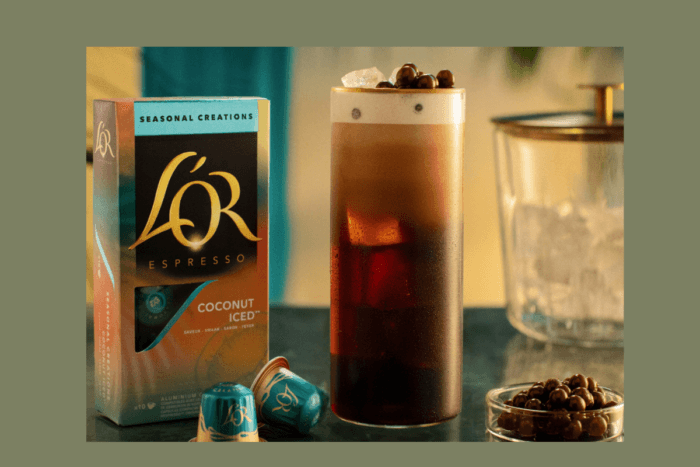After years of debate over its health effects, coffee has received official recognition from the U.S. Food and Drug Administration (FDA) as a healthy beverage. The decision, issued in December 2024, marks a major turning point for the coffee industry and aligns with a growing body of scientific evidence linking coffee to cognitive benefits and reduced risks of chronic conditions such as Parkinson’s disease and type 2 diabetes.
The FDA’s endorsement comes as the global wellness economy—valued at $4.5 trillion—continues to reshape consumer expectations. In this context, coffee is rapidly evolving from a source of caffeine into a functional beverage enriched with ingredients such as probiotics, antioxidants, and adaptogens. For producers and roasters, the recognition opens new opportunities for product development and brand positioning, particularly among health-conscious consumers. For younger generations, many of whom already associate coffee with positive health attributes, the FDA’s decision serves as a confirmation rather than a revelation.
Industry voices say the shift could have a lasting impact on how coffee is marketed and consumed. Ildi Revi, Chief Learning Officer at Purity Coffee, described the FDA’s decision as a “pivotal moment,” adding that it reinforces decades of research. She notes that this recognition may drive a broader understanding of coffee’s role in long-term wellness, moving it beyond its traditional image as a simple stimulant. Revi also points to recent data from the National Coffee Association indicating that younger drinkers are already factoring health benefits into their purchasing decisions.
Recent analysis from Euromonitor identifies wellness, luxury, and “permissible indulgence” as the key forces shaping the future of coffee. Brands across the sector are exploring health-driven innovations without compromising taste or quality. Organic beans rich in antioxidants, blends fortified with adaptogens, and cold brews containing probiotics or prebiotic fiber are becoming increasingly common. Some companies are even experimenting with CBD or psilocybin infusions. These offerings are gaining traction among consumers seeking more from their daily cup—whether for gut health, immune support, or mental clarity.
However, the surge in health-related innovation has also brought new challenges. A prominent example was the nationwide recall of Snapchill’s canned cold brew in 2024, prompted by concerns over botulism risk. The incident rattled the specialty coffee sector, underscoring the dangers of insufficient safety protocols in a fast-moving market. It echoed previous scares, such as Death Wish Coffee’s 2017 voluntary recall, and highlighted a broader pattern of vulnerabilities, from contaminated beans and poor sanitation to unsafe packaging.
Revi warns that the specialty coffee industry still harbors misconceptions about food safety. While some see regulatory compliance as an obstacle to creativity, she argues it should be viewed as a core component of product quality—particularly when health claims are involved. The danger posed by bacteria such as Listeria monocytogenes and Clostridium botulinum is real, especially in low-acid, anaerobic products like canned or nitrogen-infused cold brew. Although spores may remain dormant at low temperatures, any break in the cold chain—such as outdoor events or improper transport—can create ideal conditions for germination and contamination.
In response, more coffee companies are investing in quality control, third-party certification, and greater supply chain transparency. The National Coffee Association has issued safety guidance, including a green coffee food safety workbook and protocols for cold brew processing. According to Revi, measures such as pH monitoring, filtration, pasteurisation, and strict cold storage must be viewed not as burdens but as essential safeguards. She believes these standards can support—not stifle—industry innovation.
The financial consequences of safety failures are particularly severe for small and independent businesses. A single incident can erode consumer trust, result in significant financial loss, and permanently damage a brand’s reputation. This has led to growing calls for accountability and consistency in health claims. Revi urges the industry to move beyond self-regulation and to adopt practices such as publishing Certificates of Analysis (COAs) online, empowering consumers to assess whether a coffee aligns with their health goals. These documents could include compound levels, safe thresholds, and estimated extraction data, although Revi cautions against using COAs as tools for public criticism in a still-developing field.
The implications of the FDA’s decision extend beyond consumer trends. As the specialty coffee sector integrates wellness into its identity, it faces a future of increased oversight, including stricter labeling laws and limitations on additives. Yet the shift also creates space for new business models. Cafés are rebranding with hygiene-first messaging, while functional coffee products featuring collagen, nootropics, or adaptogenic herbs are entering mainstream retail.
Data from Euromonitor indicates that the health and wellness coffee market is expected to grow by 6.8% annually over the next five years, driven by demand for organic and functional beverages. Brands that embrace science-based standards, transparent sourcing, and product integrity are already seeing stronger consumer loyalty—and, in many cases, higher margins.
For Revi, the next chapter of coffee isn’t about competition but collaboration. She believes that industry players should work together to establish rigorous health benchmarks that benefit both public health and the coffee ecosystem. “There’s room for everyone in this space,” she says. “This isn’t just a trend—it’s a new frontier for coffee with the potential to improve the lives of millions.”
As the wellness wave reshapes the industry, coffee’s new designation as a healthy beverage brings with it both opportunity and obligation. From producers and roasters to cafés and retailers, every link in the supply chain will now be expected to meet rising standards for safety, transparency, and health impact. Whether the industry can maintain its momentum without compromising its credibility may define the next era of specialty coffee.

